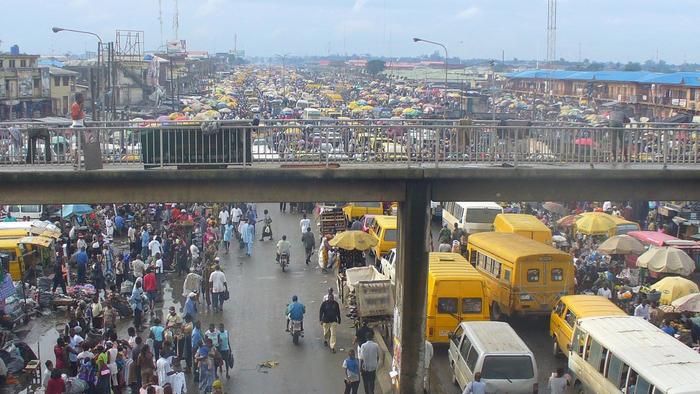Saraki: Why National Assembly’s Focus Will Remain on the Economy
Adetokunbo Fakeye
Nigeria Senate President, Dr. Abubakar Bukola Saraki, has said that the 8th National Assembly’s focus will continue to remain on the economy until the country exits recession, create jobs and facilitate private sector investment in infrastructure.
Saraki, according to a statement by his Chief Press Secretary, Sanni Onogu, disclosed this in his speech at a dinner event with the theme: “Investing and Localization” organized by General Electric (GE) and the Ministry of Trade, Industry and Investment as part of reception for the Chairman of GE Global, Jeff Immelt, in Abuja on Monday.
He said Nigeria was ready for business in spite of the current economic recession and reiterated that the 8th National Assembly is not only determined to ensure that businesses thrive in the country, but has opened its doors to the private sector to exchange ideas, opinions and engagements to enable it “create the critical legal and legislative superstructure on which the next free market Nigerian economy will anchor on.”
“Our focus in the NASS has been the economy and will remain so until we can chart a course out of recession, create jobs, facilitate private sector investment in infrastructure projects; and encourage interest in the agriculture and mining sector. We are going to achieve these through working closely together,” the Senate President said.
He commended GE and other investors who have continued to invest and maintain their businesses in the country in spite of the trying times saying he would continue to encourage local entrepreneurs to invest in the economy.
“I am passionately committed to the idea of encouraging our local investors and ensuring that our laws and policies enable you to succeed in your ventures in Nigeria,” Saraki said.
“I am delighted at the efforts GE has shown in recent times as to its investment strategy in Nigeria. Clearly, GE is committed to investing in Nigeria; and have shown that you are not only here just for the good times but have a long-term outlook for your engagement with Nigeria.”
He noted that efforts to bridge the infrastructure deficit in the country must be led by the private sector if the country is to succeed in its drive to lay a solid foundation for economic growth.
Saraki said: “correcting Infrastructure deficit must be led by the private sector. We must look at roads, ports, railways and power and see how we can encourage the private sector to invest so as to bridge the gap. Primary expenditures accounts for 56 percent of the capital budget and is still grossly inadequate.
“What do we need to do to reverse this? Also presently, we are not meeting UN commitments where we must spend 1 percent of our Consolidated Revenue Fund (CRF) on health and have a budget allocation of at least 26% on education.
“We cannot achieve this if the bulk of our government resources are tackling projects that could otherwise be driven by a vibrant and enabled private sector. This is why we must turn the resources within.
“This is at the heart of my current campaign which essentially hinges on government patronage, support for and encouragement of local investors to ‘create wealth and foster localization’.
“For us in the 8th National Assembly, it is not enough for government to say, ‘Patronize Made-in-Nigeria products and services’. We must ensure that government leads the way. Government capital expenditures in 2012 amounted to an estimated N1.8 trillion ($2bn).
“This is why the Senate has passed the bill clearly giving a margin of government patronage to local investors and those who have chosen to make locally, use locally and create jobs for our teeming population.
“We would like to see local investors especially those adapting local content into their businesses, given preferential treatment in the way government procurements are done,” Saraki said.


